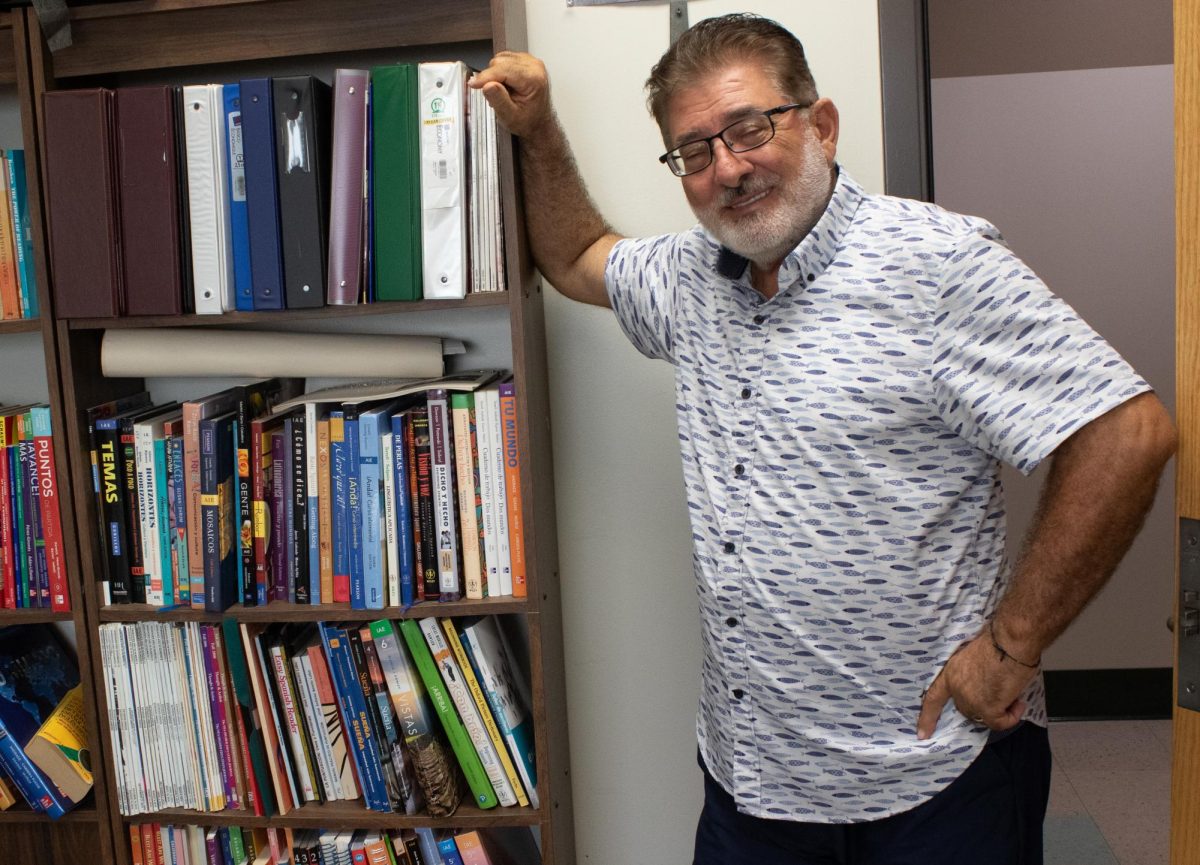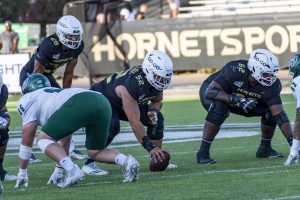Women and allies set to Take Back the Night
October 6, 2015
One in four women in the U.S. will suffer some kind of sexual violence in her lifetime. #StopVictimBlaming
Violent crimes and sexual assault against women, children and marginalized people are usually about the perpetrator having a need to assert power and control. While these types of crimes affect 17.7 million American women, only 60 percent are reported to the police, according to the W.E.A.V.E, Inc. website.
W.E.A.V.E. stands for Women Escaping a Violent Environment, a non-profit organization that provides crisis intervention services for survivors of domestic violence and sexual abuse in the Sacramento area. Organizations like W.E.A.V.E, Inc. are vital to our community because they provide a safe haven for survivors and raise awareness of this issue in the community.
The Northern California Association for Women Take Back the Night is another organization that is raising awareness and helping to give a voice to those who have experienced some form of sexual assault or violent crime. On Saturday, October 10, the organization will be hosting the 36th Annual Sacramento Women Take Back the Night. The event is part of an international tradition that takes place all throughout the world at various times of the year.
At Sacramento State, Alpha Chi Omega hosts their own Take Back the Night rally and march on campus in the spring. Olivia Ragan, a junior government major, has attended the event at Sac State and said there are always Greeks from different sororities and fraternities there to support Alpha Chi Omega in raising awareness.
Approximately 500 people attended the empowering event last year, and organizers are anticipating around 800 people this year said Christina LeMoine, a board member for Women Take Back the Night and member of the annual organizing committee. LeMoine also attends Sacramento State and is working towards a Bachelor of Science degree in women’s studies, as well as a bachelor of arts in ethnic studies, concentrating in Chicano studies.
13.3 percent of college women reported that they had been forced to have sex in a dating situation, according to research published by Sigler Johnson in the Journal for Interpersonal Violence.
LeMoine said college students are most susceptible to some form of date rape, usually by someone they know and trust.
“I feel safe on campus at most times since my sorority, Delta Gamma, has held self-defense seminars,” said Ragan. “The only time I feel I need to be more aware is when I get out of my night class once a week.”
Danielle Boontjer, a senior public relations major, does not feel as safe on campus. She also takes precautions by educating herself with self-defense classes. She said she feels safer jogging in the dark downtown than leaving class on campus.
The Sacramento Women Take Back the Night will begin at 5 p.m. It is tradition for the events to take place at night to symbolize women reclaiming the night, which has a reputation for being the time when most violent crimes and sexual assaults take place. A staple highlight of all Take Back the Night events is when attendees march together in unity throughout the streets.
Unity is an important aspect of this event because of the fact that so many of these crimes go unreported. LeMoine explained that one of the reasons for this is because of embarrassment and the tendency for society to victim blame.
“If a young college student is at a party, and she has had a beer, her encounter with a perpetrator becomes ‘why were you there? What kind of clothes were you wearing?’,” said LeMoine. “The masogonistic society we live in tends to belittle women which contributes to the high probability of why these crimes go unreported.”
Many colleges, including Sac State, have begun Title IX campaigns promoting the slogan “Yes Means Yes!” in an effort to curb victim blaming.
Part of the message that Take Back the Night events try to get out is that under no circumstances is the victim ever to blame. It should not matter what someone is wearing, whether the victim previously said yes, knows the perpetrator or is under the influence.
“That’s like blaming an animal for crossing the road and getting hit by a semi-truck,” said Boontjer. “As students we get grouped in the liberal category of finding ourselves or not being able to make responsible decisions. However, rape on college campuses puts all students at a higher risk of being affected by violence.”
Two-thirds of assaults are committed by someone known by the victim, according to information on the W.E.A.V.E. website. Their website also discloses research that shows one out of six women, and one out of 33 men have experienced an attempted or completed rape. Further research shows that an estimated 27 million people are enslaved around the world at this very moment. Human trafficking is the fastest growing criminal enterprise in the 21st Century boasting a $9 billion industry. Sacramento is known for being a leading hub for sex trafficking.
LeMoine added that another possible reason for sexual assault crimes going unreported is that there are not many resources for survivors.
“The resources that are available like W.E.A.V.E. are underfunded and under-invested in,” said LeMoine. “Why are these institutions not giving us the resources we need when it is such a big problem? If society doesn’t see a need to invest us as women, we will continue to be victimized.”
Women and children are most commonly affected by sexual abuse, but they are not the only groups. 92,700 men are forcibly raped every year in the United States, according to research by the National Sexual Violence Research Center.
Sacramento Women Take Back the Night will include a resource fair beginning at 5pm where anyone who needs advice or wants to help the cause can have their questions answered by representatives from W.E.A.V.E. and the Sac State Women’s Resource Center. The march through downtown will begin at the Sacramento Native American Health Center at 2020 J Street and will start at 8 p.m.























































































































